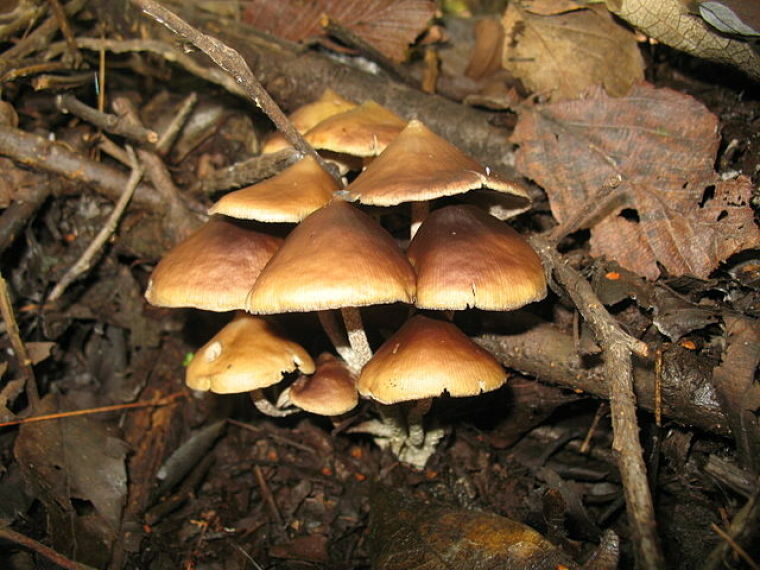Christian clerics join other religious ministers in experimenting with 'magic mushrooms'

Christian priests are joining ministers from other religions to participate in a study into the effects of psychedelic drugs on religious experience.
Two dozen religious ministers, including Catholic, Orthodox and Presbyterian priests, as well as a Zen Buddhist and several rabbis, have signed up to take part in an experiment in which they will be given two powerful doses of psilocybin, the active ingredient in magic mushrooms.
"With psilocybin these profound mystical experiences are quite common. It seemed like a no-brainer that they might be of interest, if not valuable, to clergy." said Dr. William Richards, a psychologist at Johns Hopkins University in Baltimore, Maryland, who is involved in the study.
According to The Guardian, the experiment is aimed at assessing how a transcendental experience would alter the thinking of religious leaders and whether it would make them more confident and effective in their duties.
The participants have already been given two powerful doses of psilocybin in two sessions, one month apart, after undergoing preliminary screening, including medical and psychological tests.
The sessions take place in a living room-like setting at New York University and Johns Hopkins in Baltimore, where the participants are watched over by two "guides." After taking the drug, the participants spend time lying on a couch and listening to religious music on headphones to augment their "inward spiritual journey."
"Their instruction is to go within and collect experiences," said Richards. "So far everyone incredibly values their experience. No one has been confused or upset or regrets doing it," he added.
There will be a one-year follow-up with the participants before a full analysis of the outcomes could take place.
"It is too early to talk about results, but generally people seem to be getting a deeper appreciation of their own religious heritage," Richards noted. "The dead dogma comes alive for them in a meaningful way. They discover they really believe this stuff they're talking about," he continued.
It has also been suggested that the leaders' notions of religion shifted away from the sectarian towards something more universal after they went through their psychedelic journey.
"They get a greater appreciation for other world religions. Other ways up the mountain, if you will," said Richards.
According to the U.S. Department of Justice, psilocybin is illegal and is classified as a Schedule I substance under the Controlled Substance Act. The effects of consuming the drug include "nausea, vomiting, muscle weakness, drowsiness, and lack of coordination ... hallucinations and an inability to discern fantasy from reality."
There have been reports that psilocybin has been effective in lifting acute anxiety in cancer patients at the end of life, and other current trials are looking at the use of psychoactive drugs in treating conditions such as post-traumatic stress disorder, alcoholism and severe depression.
 Christians don't have to affirm transgenderism, but they can’t express that view at work: tribunal
Christians don't have to affirm transgenderism, but they can’t express that view at work: tribunal Archaeology discovery: Medieval Christian prayer beads found on Holy Island
Archaeology discovery: Medieval Christian prayer beads found on Holy Island Presbyterian Church in America votes to leave National Association of Evangelicals
Presbyterian Church in America votes to leave National Association of Evangelicals Over 50 killed in 'vile and satanic' attack at Nigerian church on Pentecost Sunday
Over 50 killed in 'vile and satanic' attack at Nigerian church on Pentecost Sunday Ukrainian Orthodox Church severs ties with Moscow over Patriarch Kirill's support for Putin's war
Ukrainian Orthodox Church severs ties with Moscow over Patriarch Kirill's support for Putin's war Islamic State kills 20 Nigerian Christians as revenge for US airstrike
Islamic State kills 20 Nigerian Christians as revenge for US airstrike Man who served 33 years in prison for murder leads inmates to Christ
Man who served 33 years in prison for murder leads inmates to Christ


 Nigerian student beaten to death, body burned over ‘blasphemous’ WhatsApp message
Nigerian student beaten to death, body burned over ‘blasphemous’ WhatsApp message 'A new low': World reacts after Hong Kong arrests 90-year-old Cardinal Joseph Zen
'A new low': World reacts after Hong Kong arrests 90-year-old Cardinal Joseph Zen Iran sentences Christian man to 10 years in prison for hosting house church worship gathering
Iran sentences Christian man to 10 years in prison for hosting house church worship gathering French Guyana: Pastor shot dead, church set on fire after meeting delegation of Evangelicals
French Guyana: Pastor shot dead, church set on fire after meeting delegation of Evangelicals ‘Talking Jesus’ report finds only 6% of UK adults identify as practicing Christians
‘Talking Jesus’ report finds only 6% of UK adults identify as practicing Christians Mission Eurasia ministry center blown up in Ukraine, hundreds of Bibles destroyed: 'God will provide'
Mission Eurasia ministry center blown up in Ukraine, hundreds of Bibles destroyed: 'God will provide' Church holds service for first time after ISIS desecrated it 8 years ago
Church holds service for first time after ISIS desecrated it 8 years ago Burger King apologizes for 'offensive campaign' using Jesus' words at the Last Supper
Burger King apologizes for 'offensive campaign' using Jesus' words at the Last Supper Uganda: Muslims abduct teacher, burn him inside mosque for praying in Christ’s name
Uganda: Muslims abduct teacher, burn him inside mosque for praying in Christ’s name